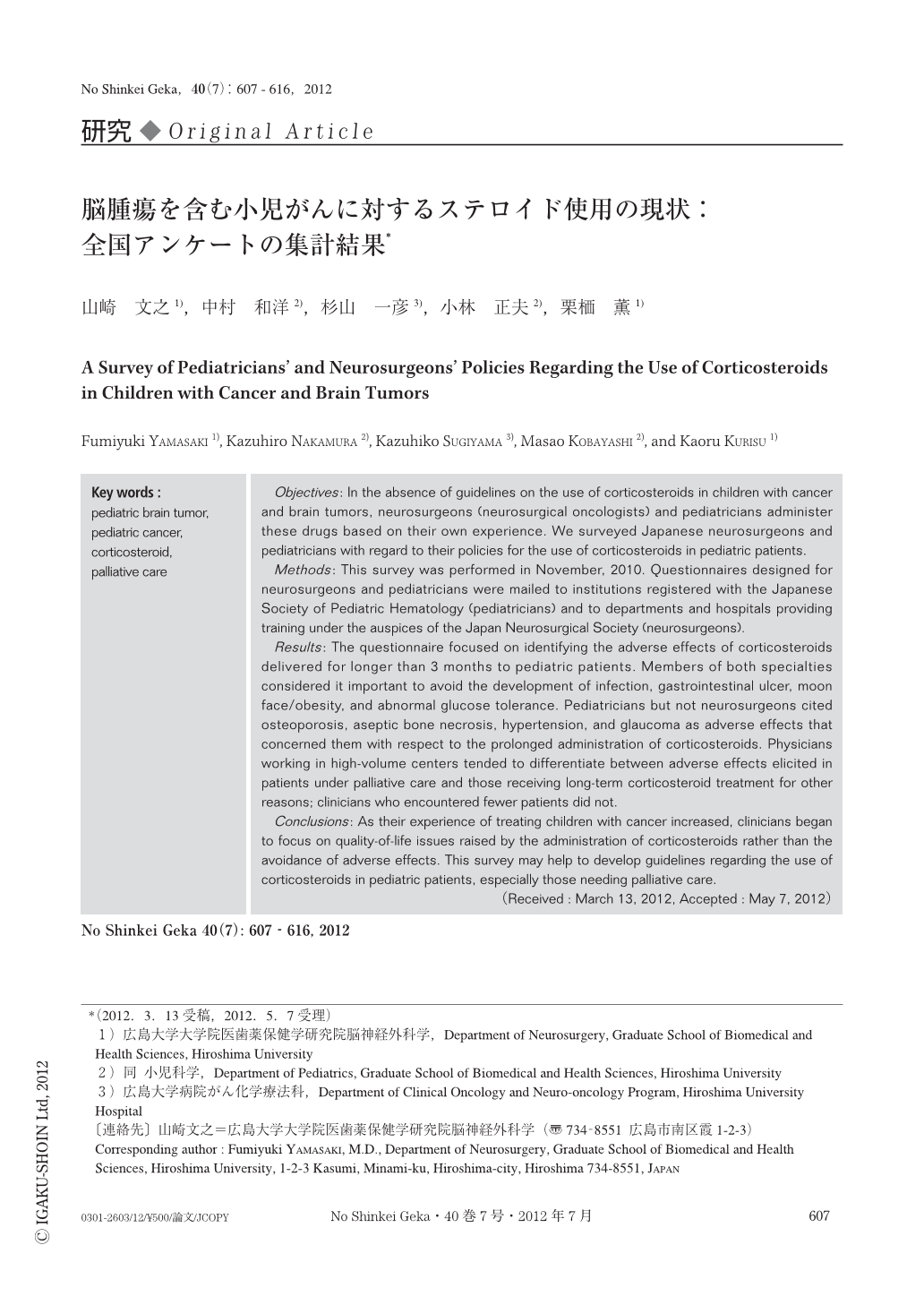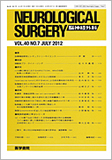Japanese
English
- 有料閲覧
- Abstract 文献概要
- 1ページ目 Look Inside
- 参考文献 Reference
Ⅰ.はじめに
小児がんは5~15歳の子どもの病死の原因の第1位である5).総死亡数では白血病が最も多いが,白血病は治療の進歩に伴いその死亡率は減少してきており,死亡率では脳腫瘍が最も高い5,12).悪性脳腫瘍の治療成績の改善は急務であるが,小児の脳幹神経膠腫や上衣腫などにおいては抗がん剤の効果が不十分で,分子標的薬の効果も未だ限定されたものであり2),ステロイドによる脳浮腫治療と緩和ケアは患児のquality of life(QOL)を保つために重要な地位を占める14).また,脳腫瘍以外の小児がんでも,緩和ケアにおいてステロイドは重要な薬剤である1).しかし,脳腫瘍を含む小児がんへのステロイドの長期投与は,GVHD 10)やリンパ性白血病11)などを除き,多くの場合個々の症例に対して治療医の経験に基づいて行われており,適切な薬剤の選択,治療量や副作用対策についての明確なガイドラインは存在しなかった.ステロイドの副作用は多岐にわたるが16,17),脳腫瘍を含む小児がん患者においてもステロイドの種々の副作用対策は重要であり,治療指針の整備は急務である.
以上の諸点を踏まえ,小児がんに対するステロイドの使用状況の実態調査を行い,その課題を検討した.
Objectives: In the absence of guidelines on the use of corticosteroids in children with cancer and brain tumors,neurosurgeons (neurosurgical oncologists) and pediatricians administer these drugs based on their own experience. We surveyed Japanese neurosurgeons and pediatricians with regard to their policies for the use of corticosteroids in pediatric patients.
Methods: This survey was performed in November, 2010. Questionnaires designed for neurosurgeons and pediatricians were mailed to institutions registered with the Japanese Society of Pediatric Hematology (pediatricians) and to departments and hospitals providing training under the auspices of the Japan Neurosurgical Society (neurosurgeons).
Results: The questionnaire focused on identifying the adverse effects of corticosteroids delivered for longer than 3 months to pediatric patients. Members of both specialties considered it important to avoid the development of infection, gastrointestinal ulcer, moon face/obesity, and abnormal glucose tolerance. Pediatricians but not neurosurgeons cited osteoporosis, aseptic bone necrosis, hypertension, and glaucoma as adverse effects that concerned them with respect to the prolonged administration of corticosteroids. Physicians working in high-volume centers tended to differentiate between adverse effects elicited in patients under palliative care and those receiving long-term corticosteroid treatment for other reasons; clinicians who encountered fewer patients did not.
Conclusions: As their experience of treating children with cancer increased,clinicians began to focus on quality-of-life issues raised by the administration of corticosteroids rather than the avoidance of adverse effects. This survey may help to develop guidelines regarding the use of corticosteroids in pediatric patients,especially those needing palliative care.

Copyright © 2012, Igaku-Shoin Ltd. All rights reserved.


